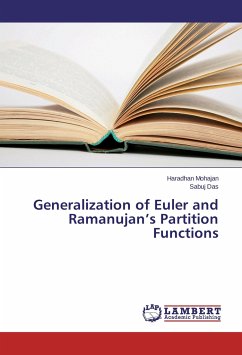The purpose of the book is to describe Partition Functions and Generating Functions of Number Theory. Gottfried Willhelm Leibnitz (1646-1716) was among the first mathematicians who contribute to the development of partitions. But the greatest contributions in the early stages of the partitions theory were due to great mathematician Leonhard Euler (1707-1783) in the mid-eighteenth century and yet it continues to reveal its mysteries. Indian great mathematician Srinivasa Ramanujan was perhaps the first mathematician to seriously investigate the properties of partition function P(n). He established a formula for P(n), one which describes the exceptional rate of growth suggested. Generating functions were first introduced by Abraham de Moivre in 1730 in order to solve the general linear recurrence problem. In 1742, Leonhard Euler developed the generating function for P(n). In this book recent development of partition functions and generating functions are discussed with easier mathematical techniques.








